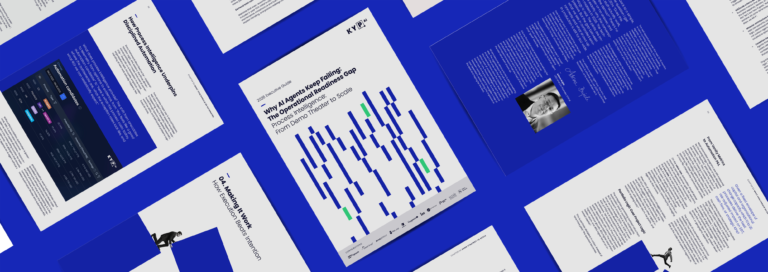Amidst the shifting sands of the corporate world, the concept of productivity is experiencing a profound metamorphosis.
The enlightening discourse of Josh Bersin in “HR Predictions for 2024: The Global Search For Productivity” echoes through the corridors of modern enterprises, sparking pivotal conversations in boardrooms and virtual meetings.
As a Chief People Officer, I find myself deeply aligned with Bersin’s vision, especially as we steer through the uncharted waters of apparently not-so-distant future of work.
White-collar Productivity: The New Frontier
Productivity transcends mere metrics; it embodies the heartbeat of organizational vitality and mirrors the collective intellect of its workforce. The recent PwC CEO survey, highlighted by Bersin, reveals a staggering perception by CEOs: 40% of work in their companies is unproductive. This figure is not just a wake-up call; it’s an alarm bell signaling a vast chasm between talent engagement and task execution, between existing opportunities and their realization.
In economics, productivity measures output per unit of input, such as labor, capital, or any other resource. It’s a ratio reflecting the efficiency of processes, linking directly to corporate profitability and shareholder returns. This concept is pivotal at both macro and micro levels, from national economies down to individual corporations.
The Personal and Collective Impact of Productivity
At its core, productivity isn’t solely an economic term; it’s a lifeline of progress and innovation. Personal productivity outlines an individual’s capacity to accomplish daily tasks efficiently, while workforce productivity aggregates this across an organization’s human capital.
Reflecting on Franz Kafka’s insight, “Productivity is being able to do things that you were never able to do before,” it’s evident that productivity is not just about doing more in less time. It’s about breakthroughs, transformative ideas, and pushing the boundaries of what was previously considered possible.
As we embark on 2024, the lens through which we view productivity is changing. No longer confined to spreadsheets and reports, it’s about leveraging the immense potential of our people, powered by innovative tools and technologies.
It’s about answering the call to arms that this 40% unproductive work presents, transforming it into a wellspring of opportunity and growth.
Enabling Three-day Workweek?
As we ponder this reality, Bill Gates’ musings on the potential of a three-day workweek echo with newfound relevance. It’s a thought that excites as much as it challenges, suggesting a horizon where AI doesn’t just augment but amplifies human potential. It’s in this light that I approach the subject, reflecting on the profound impact of AI on our productivity and the role C-suite must play in harnessing this potential.
Reflecting on my two decades in the professional sphere, I’ve witnessed substantial shifts in how we work. Mobile phones, broadband internet, video conferencing, and remote work capabilities have all marked significant changes. Yet, despite their impact, these advancements felt more like a gradual evolution rather than a revolution.
However, since the rise of ChatGPT in late 2022, the narrative has drastically changed. We are now in the midst of a revolution, one that is reshaping the landscape of white-collar productivity in ways we’ve never seen before. The advent of AI in the workplace, particularly in its generative forms, is not just a step forward; it’s a giant leap.
The changes brought about by this AI revolution are profound, yet there’s a natural human tendency to underestimate their depth and breadth. This is understandable. The development and evolution of AI capabilities are not linear; they’re exponential. Every day, we’re greeted with emerging capabilities and applications that were beyond our imagination just a few short years ago. The pace of change is not just rapid; it’s staggering.
Feeling overwhelmed in the face of such relentless advancement is a natural reaction. But what’s crucial is how we respond to this overwhelming sensation. In these transformative times, complacency is not an option. Sitting back and waiting for someone else to “figure it out” is a strategy that risks leaving us, and our organizations, far behind.
As someone who’s navigated the corporate world for over 20 years, I urge professionals and organizations alike not to ignore this revolution. Embracing AI, understanding its capabilities, and integrating it into our workflows is not just a choice; it’s an imperative. At KYP.ai, we recognize this urgency. Our platform is designed to help you harness the power of AI, ensuring you’re not just a participant in this revolution, but a leader in it.
The future of productivity is knocking at our door, and it speaks in the language of AI. It’s time to answer that call. In the following paragraphs, I delve into the reasons behind productivity’s newfound spotlight, drawing inspiration from Josh Bersin’s compelling insights.
As we unpack his arguments, let’s reflect on their implications for our organizations, considering the rapidly approaching future where AI doesn’t just supplement but amplifies our work in unprecedented ways. This isn’t just about understanding a trend—it’s about positioning ourselves at the forefront of an inevitable transformation.
Productivity: The CEO’s Wake-Up Call
From Bersin’s perspective CEOs are acutely aware of productivity —or the lack thereof —within their organizations. The 2024 PwC CEO survey casts a stark light on the issue, revealing a belief among top executives that a staggering 40% of work could be characterized as wasted effort. This isn’t a trivial matter; it’s a significant drag on progress and a source of frustration at the highest levels of leadership.
This startling statistic from the PwC CEO survey isn’t just a wake-up call—it’s a battle cry for change. In my experience, this ‘wasted effort’ often hides in plain sight, manifesting as redundant meetings, convoluted hiring processes, and cumbersome administrative tasks. As a leader, my focus should not be just on the bottom line but on unlocking the latent potential within my team(s) and the entire organization. The possibility that AI could liberate 40% of our time to pursue more strategic and innovative endeavors is not just exciting—it’s revolutionary.
(Gen) AI: The White-collar Productivity Catalyst
AI’s role in the productivity landscape is becoming increasingly pivotal, especially for white-collar tasks. Gone are the days when automation was solely the realm of manual labor; today, Generative AI is transforming how we manage documents, workflows, and even learning. It’s about cutting through the clutter of administration and compliance to offer clearer, more efficient paths to completing tasks.
As we observe the transformative power of AI in the white-collar domain, it’s hard not to be excited about the potential it holds. In my role, the shift is palpable. AI is no longer a distant concept; it’s here, reshaping how we work.
The power of Generative AI lies in its ability to sift through the massive data and workflows we contend with daily, offering us insights and efficiencies previously unattainable. It’s like having a supercharged assistant that not only knows the intricacies of our work but also suggests ways to do it better.
The prospect of harnessing this technology to refine our work, improve our learning mechanisms, and ultimately boost our productivity, is a game-changer. This is what makes AI not just a tool but a transformative partner in our quest towards greater efficiency and effectiveness.
Productivity: The New Growth Engine
Facing a tight labor market and increased hiring times, organizations are at a crossroads. Growing and competing effectively means finding alternatives to traditional hiring. This is where internal development, re-skilling, and strategic automation projects come into play. Generative AI opens doors to opportunities that were previously unimaginable, offering a key to growth in a world where talent is scarce.
The traditional approach to growth through hiring alone is no longer sustainable. We’re experiencing a shift where internal talent development and strategic automation are becoming vital for growth. In my organization, we’re seeing the practical implications of this shift. Instead of constantly looking outward for new hires, we’re turning inward, tapping into the potential of our existing workforce. We’re leveraging the capabilities of Generative AI not only to optimize our processes but also to identify and nurture the skills within our teams.
This vision not only addresses the challenge of talent scarcity but also fosters a culture of continuous learning and adaptability. It’s a compelling journey, transforming our workforce into a more dynamic and resilient entity, capable of driving growth even in the face of external talent shortages. This reorientation towards internal development, powered by AI, is not just a necessity but a strategic choice that is setting us up for long-term success.
Continous Reinvention: The Ultimate Productivity Side-effect
The concept of reinvention is crucial in today’s fast-evolving business landscape. Productivity isn’t just about doing things faster or more efficiently; it’s about enabling transformation. The inertia that once held back giants like Nokia and Blackberry is a stark reminder of the risks of complacency. In this era, where talent and skills are at a premium, not leveraging productivity to reinvent can spell disaster.
Reflecting on Josh Bersin’s insights, the importance of reinvention in the context of productivity strikes a chord with me. At KYP.ai, we view productivity as a transformative force, not just a metric to be optimized.
It’s about fostering a culture where innovation is not just encouraged but ingrained in every process and decision. The lessons from Nokia and Blackberry are not lost on us; they serve as a reminder that no matter how successful we are today, the failure to adapt and reinvent can lead to obsolescence tomorrow.
This is precisely why we help our customers leverage their data to draw actionable insights, not just to ‘do things better’ but to constantly question the ‘what’ and ‘why’ of their operations. This mindset of continuous transformation driven by enhanced productivity is what keeps us agile, relevant, and ahead of the curve. It’s a philosophy that permeates through every layer of our organization, ensuring that we are not just participants in the future but active creators of it.
Know Your Potential with Productivity 360
We’re entering a transformative era where white-collar productivity is undergoing a radical shift. AI isn’t just tweaking how we work; it’s fundamentally redefining it. This change is reshaping our understanding of efficiency and reimagining what it means to be productive.
In this new productivity race, the victors will be those who not only quickly adopt Generative AI and other AI technologies but also understand how to use them most effectively. It’s about outsmarting competitors in integrating these groundbreaking technologies into our daily work.
At KYP.ai, we’re at the forefront of this revolution. Our Productivity 360 platform reveals the true nature of how work is done within your organization, uncovering improvement opportunities that go beyond mere automation or Gen AI applications. We provide live insights and continuously measure the impact of your initiatives, enabling you to track and quantify ROI every step of the way.
A prime example of our impact is our work with companies across five continents in optimizing the deployment of Microsoft Copilot. With KYP.ai, the guesswork and reliance on intuition are eliminated. We precisely pinpoint areas within your organization where Copilot can significantly transform work processes, alleviate friction, boost productivity, and enhance employee engagement. This strategic approach not only maximizes efficiency but also ensures a solid, measurable ROI, truly embodying the essence of smart, AI-driven business transformation.
We’re here to navigate through this maze of possibilities, helping you emerge as a leader in efficiency and innovation. With us, the vision of a more productive, AI-enhanced future isn’t just a possibility; it’s within your reach.
Discover Your Productivity Potential – Book a Demo Today
Book Demo




